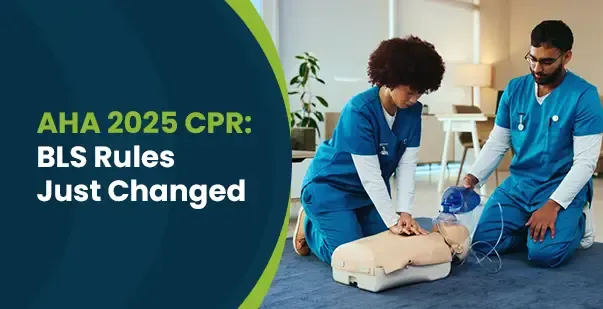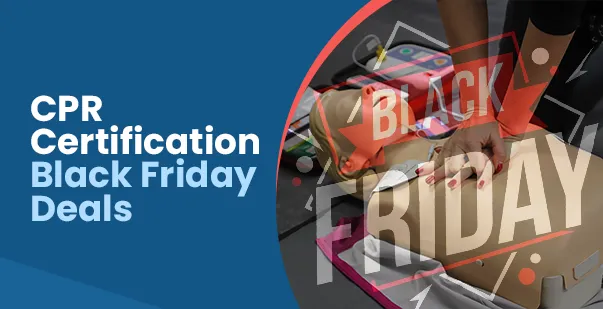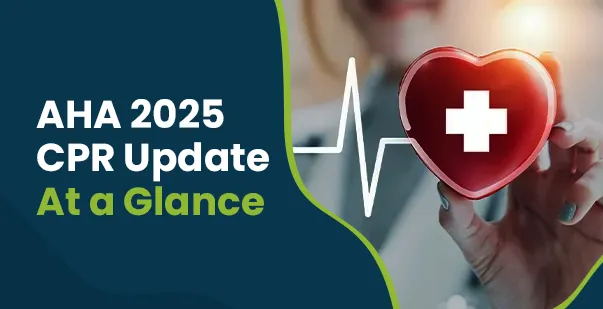One of the common questions that prevents people from acting during medical emergencies is, “Can you be sued if you are not certified for performing CPR?” Facing possible legal consequences can be intimidating. But the truth may shock you.
The United States statistics reveal that 68 percent of adults feel helpless in a cardiac emergency because they do not know how to perform CPR or because it has been a long time since their training. However, rapid CPR can double or even triple a person’s survival prospects.
The United States uses good Samaritan laws that protect individuals providing assistance in emergency situations against lawsuits. Well, although you could be sued for almost anything, including being sued for CPR, that is hardly a reality. Read the blog to learn more.
What are the legal implications of performing CPR without certification?
It is true that there are some legal implications of performing CPR without certification, but the overall risk remains quite minimal. In America, practitioners such as surgeons must be registered before commencing the practice; however, CPR is not considered under that umbrella of procedures. Good Samaritan laws are in place to prevent those who help in emergency cases from being sued. Though these protections may differ, you must ensure their understanding of the laws governing your jurisdiction. Learn the legal implications:
- CPR is not a surgical operation, and one can perform it without any certification.
In contrast to surgical treatments, which require registration with professional organizations, anyone can perform CPR, regardless of their occupation. However, formal training may make CPR more efficient, but it is not a legal necessity. This aim is to sustain life until more medical aid becomes available, and any CPR usually trumps no-CPR. - Good Samaritan laws ensure the protection of people who help in times of need.
Such laws usually protect individuals who offer emergency assistance from acts of negligence. They seek to inspire bystanders to help in emergencies without fear of being sued. On the other hand, state laws might differ, so it is important to know your local law. - Although you can literally be sued for anything, the possibility of being sued due to performing CPR is minuscule.
While the number of CPR lawsuits is small, those that do arise typically allege extreme negligence or deliberate injury rather than mere error. In reality, no lay rescuer has ever been successfully sued for performing CPR due to the shielding provided by Good Samaritan laws. The fact that a person’s potential fear of legality should not prevent him from taking life-saving action. - While CPR certification is not necessary to deliver CPR, ensuring that you receive proper training can reduce legal liabilities and improve your level of response.
A CPR certification ensures training, improves your capacity to perform CPR, and possibly minimizes legal liabilities. Certification generally encompasses training on Good Samaritan laws and other pertinent legal issues. Although ungoverned by the state or federal government, CPR certification may provide useful skills and knowledge that could help save someone’s life.
How do good Samaritan laws protect those performing CPR?
The purpose of Good Samaritan laws is to protect individuals who provide assistance to other people in emergency situations, including CPR. Most often, these laws protect people from criminal liability if they offer reasonable first aid to someone in danger. Here are how laws protect those performing CPR:
- The good Samaritan laws encourage public involvement in the process of managing emergency situations.
These laws protect bystanders from any civil liabilities and enable them to perform CPR or use an Automated External Defibrillator (AED). This is to encourage a quick response and readiness to assist in an emergency. These laws increase the number of individuals willing to administer CPR by lowering their fear of penalties. - There are different Good Samaritan laws that apply in various jurisdictions.
Whereas most jurisdictions shield bystanders regardless of their CPR status, some states provide such protections only to medically trained rescuers. You must be familiar with the particulars of Good Samaritan laws in your region to understand what rights you have protected by law. However, the similarity between these laws is that they provide legal protection to those who render reasonable aid in an emergency. - The Good Samaritan laws protect persons who render assistance that is reasonable and necessary.
These laws protect individuals who offer reasonable help where they suspect someone is ill. This covers providing CPR, which is often a reasonable and necessary form of aid in most emergency scenarios. As long as the actions that are undertaken are reasonable, an individual can be secure from civil responsibilities. - The Good Samaritan law for CPR protects those who would offer assistance in an emergency.
The law protects an individual who acts in good faith to help anyone suffering from a medical condition. Such activities include administering CPR, even if the person is not medically trained. The purpose of this legislation is to promote quick reaction in case an emergency occurs, through which survival chances can be greatly increased by 6%.
Read more: Rescue breathing vs CPR: The Basic Difference
What are the risks associated with performing CPR incorrectly?
Incorrect CPR may have many dangers for the patient, such as physical injuries and a loss of effectiveness in resuscitation. Whereas the main objective of CPR is to circulate blood flow through the heart and brain during a cardiac arrest, incorrect techniques may cause complications. Learn the risks associated:
- Broken Ribs and Internal Injuries: Chest compressions cause broken or fractured ribs as a result of the force involved. This risk is more prevalent in elderly patients because of frail bones. Broken ribs may result in secondary injury to internal organs such as the lungs, among others.
- Air Embolism and Visceral Injuries: The incorrect position of the hands as well as too much force applied in CPR can lead to air embolism and visceral injuries. Air embolism is a condition caused by air bubbles in the bloodstream that could be fatal if it happens to reach the brain or heart. The injuries to internal organs can make the patient’s recovery process more complex.
- Ineffective Resuscitation Efforts: Correct CPR helps restore blood flow to the brain and heart. For example, blowing air into the stomach as opposed to inhaling can compromise rescue breaths. This may retard the patient’s healing or aggravate their condition.
- Risk of Vomiting and Aspiration: Patients may vomit due to incorrect CPR techniques. If the patient is unconscious, this can lead to the aspiration of vomit inhaled into the lungs. Aspiration may cause serious lung infections as well as various other respiratory complications.
Read More: 10 ways to find the best CPR classes nearby
Can you be sued for not performing CPR?
Although it is possible to sue a person without certification when performing CPR, the probability is low. In most jurisdictions, Good Samaritan laws protect individuals who help in emergencies against potential lawsuits. These laws typically protect those who offer emergency treatment, such as CPR action, from liability for negligence. The aim is to ensure that bystanders help in emergencies with no fear of criminal proceedings. But even an uncertified individual can do better than inaction. Nevertheless, laws vary from state to state, and therefore, it is always critical that one understands the different set of rules in his or her own jurisdiction.
Conclusion
So can you be sued for giving CPR? Although it may be possible to be sued for CPR without any certification, the risk is minimal in consideration of Good Samaritan laws. Such laws provide immunity from negligence suits for persons who render emergency assistance. But if one acts with gross negligence, they can be sued. It should also be stated that no lay rescuer who administered CPR has ever been sued successfully.









